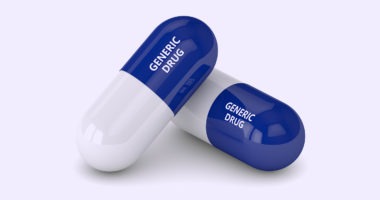Contract Service Providers and Suppliers Expand
A roundup of recent key investments and deals from contract manufacturing organizations and contract development and manufacturing organizations.
This year has seen some noteworthy investments and deals among contract service providers and suppliers. What has been the key activity among fine chemical companies and contract manufacturers of active pharmaceutical ingredients and drug products? DCAT Value Chain Insights examines recent investment and deals.
Evaluating mergers, acquisitions and expansions
This year has been noteworthy for certain large-scale deals. Chief among them is Merck KGaA’s pending $17.0-billion acquisition of Sigma Aldrich, a move to strengthen the life-science supply organization of Merck KGaA. Closing is expected in mid-year 2015, subject to regulatory approvals and other customary closing conditions. The combined company will serve the life-science industry with more than 300,000 products, which includes a range of products across laboratory chemicals, biologics, and reagents. In pharma and biopharma production, Sigma-Aldrich will complement EMD Millipore’s existing products and capabilities with additions along the value chain of drug production and validation. Merck KGaA said it plans to maintain a significant presence in St. Louis, Missouri and in Billerica, Massachusetts following completion of the transaction, as well as in important EMD Millipore sites, such as Darmstadt, Germany and Molsheim, France. Based on fiscal year 2013 financials, the combined businesses have combined sales of EUR 4.7 billion ($6.1 billion).
Another key move was the initial public offering of Catalent Inc., the parent company of Catalent Pharma Solutions. Catalent said that the proceeds of the offering will be principally used to redeem more than $800 million (estimated at midpoint) of Catalent’s outstanding debt. The company says that this will allow the company to reduce its interest expense, enable internal and external growth strategies, and continue investments into new technologies, capabilities, global development, and manufacturing facilities and capacity. Examples of recent investments include new facilities for the company’s softgel and clinical supply businesses in China and Brazil, a new $20-million Biologics Center of Excellence for cell-line development and biomanufacturing in Madison, Wisconsin, and a $35-million ongoing expansion in the company’s Oral Advanced Technologies manufacturing site in Winchester, Kentucky. The company also recently acquired acquired the remaining stake in Redwood Bioscience Inc., which includes the SMARTag Antibody-Drug Conjugate (ADC) technology platform. Other investments announced by Catalent in 2014 include: plans to install new automated prefilled syringe clinical packaging lines at its Philadelphia Clinical Supply Center of Excellence; plans for a dedicated laboratory at its Kakegawa, Japan site to provide proof-of-concept support and feasibility studies for Catalent’s proprietary Zydis Orally Dispersible Tablet (ODT) technology; and an expansion of manufacturing capacity for its OptiGel Micro softgel technology.
In September 2014, DPx Holdings B.V., privately owned by JLL Partners and Royal DSM and the parent company of Patheon, completed the transaction to acquire Gallus BioPharmaceuticals, LLC, a contract manufacturing company specializing in biologics. Patheon’s biologic drug substance business, a unit of DPx Holdings, now includes four global facilities in Europe, Australia, and North America and more than 550 employees. The addition of Gallus BioPharmaceuticals provides Patheon with additional biologics capabilities, namely process development as well as clinical- and commercial-scale manufacturing of mammalian cell-culture derived products. Patheon gained drug-substance biologics capability with the merger of Patheon and DSM Pharmaceutical Products to form DPx Holdings, a deal which was completed in March 2014, and the subsequent integration of the Biosolutions and Biologics businesses of DSM Pharmaceutical Products into Patheon.
In a subsequent move, DPx Holdings B.V. and its business unit Patheon will expand its operations in Pitt County, North Carolina, according to an announcement by North Carolina Governor Pat McCrory and North Carolina Commerce Secretary Sharon Decker. The company plans to create 488 jobs in Greenville by the end of 2019 and invest $159 million to increase the site’s capabilities as well as modernize the site and develop energy-efficiency programs at the facility. The investment will also make the Greenville site home of Patheon’s North American Sterile facility as well as boost growth for its Pharmaceutical Development Services offering, which will be built out at the site. DPx Holdings’ US headquarters is located in Durham, North Carolina, and the company also has a manufacturing facility in High Point, North Carolina. The company currently has more than 1,680 employees in North Carolina, including more than 1,000 at its Pitt County facility. Globally, the company has over 8,000 employees at more than 20 locations. The expansion will address Patheon’s need for additional manufacturing and development capacity.
In another deal of specialty and fine chemicals, Albemarle Corporation and Rockwood Holdings, Inc. have entered into a definitive agreement under which Albemarle will acquire all outstanding shares of Rockwood in a cash and stock transaction valued at approximately $6.2 billion. The boards of directors of both companies have approved the transaction. The transaction is subject to shareholder and regulatory approvals and other customary closing conditions and is expected to close in the first quarter of 2015.
In September, Consort Medical plc agreed to acquire Aesica Pharmaceuticals Limited for £230 million ($373 million). The closing of the transaction, which is expected to occur in November, is conditional on the approval of Consort Medical’s shareholders and clearance by the German competition authorities. Consort’s board of directors has approved the proposed acquisition. Consort Medical plc is focused on developing and manufacturing disposable medical devices for drug delivery, including inhaled, nasal and injectables products through its core operating division Bespak. Aesica is a contract development and manufacturing organization, providing contract development and manufacturing services for finished dose and active pharmaceutical ingredients (APIs).
In expansions, Almac has expanded its UK commercial packaging facility to provide a humidity-controlled blister packaging suite, complete with off-line “just-in-time” blister printing. Meeting the requirements of two Japanese clients, the expansion included suite modifications for processing humidity-sensitive drug products and installation of a new Noack 623 blister line, a custom-designed desiccant feeder, and an off-line Hapa Blister-Jet printer. Almac earlier announced an investment to more than double the existing capacity of its 2-8 °C clinical supply labeling cold room facilities in the company’s European and US-based facilities.
The company also is investing more than £54 million ($90 million) to create 348 jobs over the next five years. Almac currently employs more than 2,100 staff at its headquarters in Craigavon, Northern Ireland, with an additional 1,380 staff located in facilities throughout the rest of the UK, US, and Asia. The investment, supported by Invest Northern Ireland, a regional development agency and part of the UK’s Department of Enterprise, Trade and Investment, relates to two of the group’s operating business units, Pharma Services and Clinical Services. The company will be adding 141 new staff over the next five years to Almac Pharma Services, which provides contract development and manufacturing services, and 181 jobs over the next fives years to Almac Clinical Services, which provides clinical packaging, labeling, logistics, and clinical supply-chain management services. Almac Clinical Services is also investing in cold-chain storage and distribution facilities and enhanced information technology systems. The investment will also create a further 26 jobs in the Almac Group.
West Pharmaceutical Services, Inc. plans to expand its global manufacturing operations to include a new site in Waterford, Ireland. The new facility will produce packaging components for insulin injector cartridges and other high-value packaging components. Construction is planned to begin in early 2015 on the 44-acre site at Knockhouse on Old Kilmeade in Waterford, subject to the project obtaining requisite planning and zoning approvals, which the company believes will occur later this year. This site will be a center of excellence for West’s proprietary elastomeric sheeting, which is used to package insulin for use in pen injectors. Future plans include additional manufacturing space for West’s proprietary injectable component product lines, which are integral to many injectable and dosage forms. With these expansions, the plant eventually could accommodate between 250 to 300 jobs and involve an investment in the range of EUR 100 million ($126 million).
Earlier this year, West also dedicated its manufacturing plant in the Sri City Special Economic Zone in India, where the company will expand its primary packaging for injectable medicines business. In June 2012, West signed a 99-year lease on 72,800 square meters (approximately 783,600 square feet) of land in Sri City. Construction began in August 2012 on a 15,300-square meter (approximately 164,700-square feet) facility that will produce seals used in primary packaging of injectable medicines manufactured by West’s pharmaceutical and biopharmaceutical customers in India and the wider Asia Pacific region. There are future plans to expand production at the site to include West’s elastomer component business. West’s presence in the Asia Pacific market includes a plant in Singapore, two plants in Qingpu, China, and sales offices in Australia, China, India, and Singapore. West also owns 25% of Daikyo Seiko, Ltd, Tokyo, Japan. Daikyo Seiko is a provider of pharmaceutical packaging and medical device components. The West/Daikyo relationship was formed in 1973 and includes joint marketing agreements and technology transfer and licensing agreements.
Also in 2014, DPT Laboratories, a contract development and manufacturing organization with a specialized focus on semi-solid and liquid dosage forms, acquired Meda Pharmaceuticals’ Lakewood, New Jersey facilities. The acquisition allows DPT to expand its footprint in Lakewood by adding two buildings totaling 90,000 square feet of space, which include additional cold storage and a larger analytical laboratory. As part of the acquisition, DPT will also absorb Meda Pharmaceuticals’ employees to continue the manufacturing of MUSE (alprostadil), an urethral suppository product. Meda Pharmaceuticals Inc. is the US subsidiary of the Solna, Sweden-based pharmaceutical company Meda AB.
In September 2014, WuXi PharmaTech (Cayman) Inc., a pharmaceutical, biotechnology, and medical device research and development outsourcing company with operations in China and the United States, acquired XenoBiotic Laboratories, Inc., a contract research organization specializing in bioanalytical, drug metabolism, and pharmacokinetic services. Earlier this year, WuXi’s manufacturing subsidiary, Syn-The-All Pharmaceuticals Co., Ltd., begun construction of a new R&D and cGMP manufacturing site in Changzhou, about 110 miles west of Shanghai. The new campus will be constructed in phases and include both research manufacturing and commercial manufacturing facilities. Facilities constructed in Phase 1 will double the company’s current manufacturing capacity and be operational by the fourth quarter of 2015. Upon completion of the entire project, the site will triple current capacity and have the capacity to house more than 1,500 employees, including chemists, production staff, and supporting staff. WuXi also broke ground on a new facility in Philadelphia for the manufacture of cell therapies. The facility is expected to become operational in the second quarter of 2015.
AMRI completed two important acquisitions: OsoBio and Cedarburg Pharmaceuticals. OsoBio is a manufacturer of injectable drug products. Its expertise in large-scale commercial production is complementary to AMRI’s early-stage drug product manufacturing capabilities. The acquisition enables AMRI to provide sterile fill/finish services from Phase I development to commercial supply. OsoBio is located in Albuquerque, New Mexico. Its core capabilities include liquid fill and lyophilized products, highly potent compounds, cytotoxics, proteins and peptides, monoclonal antibodies, vaccines, liposomal suspensions, and controlled substances. Cedarburg Pharmaceuticals, based in Grafton, Wisconsin, is a contract developer and manufacturer of APIs and intermediates for both generic and branded pharmaceuticals.
Earlier this month, Recipharm AB, a contract development and manufacturing organization based in Jordbro, Sweden, completed its acquisition of Milan-based Corvette Pharmaceutical Services Group from the Italian private equity Group LBO Italia Investimenti s.r.l. for EUR 120 million ($160 million). Corvette Pharmaceutical Services Group (consisting of Corvette Group SpA and LIO Immobiliare s.r.l.) has three manufacturing facilities located in the Milan region of Northern Italy. Each facility specializes in a different technology and business area. Masate has a sterile injectable manufacturing facility with capabilities for both lyophilization and liquid filling of vials and ampuls, including hormones. Paderno Dugnano has an API and finished dose form development and manufacturing facility with a number of owned product rights, including erdosteine, an important mucolytic product. The facility supplies the global market, including the US and Japan. Lainate offers bulk lyophilization of sterile beta-lactam antibiotics supplied to numerous markets
Also, CellMark Chemicals, a division of Gothenburg, Sweden-based CellMark AB, completed its acquisition of AnMar International Ltd. AnMar, located in Bridgeport, Connecticut, is a well-established manufacturer and distributor of a wide variety of vitamins, plant extracts, nutraceutical ingredients, amino acids, and other fine chemical-related products. CellMark Chemicals, headquartered in Stamford, Connecticut, is a global supplier of chemical products with 16 offices located worldwide. It specializes in the sourcing, selling, and custom manufacturing of specialty chemical products. CellMark Chemicals deals primarily with organic, inorganic, specialty, and fine chemicals and active ingredients. Its portfolio of more than 500 products are sold into the industrial specialties, health, and personal care markets.




